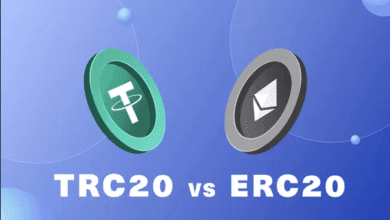Smart Contracts in Blockchain: Examples and Applications

smart contracts in blockchain example
Smart contracts have become a fundamental component of blockchain technology, revolutionizing how transactions and agreements are executed. These self-executing contracts are written in code and automatically enforce the terms and conditions laid out within them. In this article, we’ll explore the concept of smart contracts, how they work, and provide examples of their applications across various industries.
What are Smart Contracts?
Smart contracts are digital contracts stored on a blockchain that automatically execute actions when predefined conditions are met. Unlike traditional contracts, smart contracts do not require intermediaries, making transactions more efficient, secure, and transparent.
Key Features of Smart Contracts
- Self-Executing: Automatically trigger actions based on pre-set rules.
- Immutable: Once deployed on the blockchain, the contract cannot be altered.
- Decentralized: Operate on a blockchain, eliminating the need for a central authority.
- Transparent: Terms and conditions are visible to all parties involved.
How Smart Contracts Work
Smart contracts are written in programming languages like Solidity (for Ethereum) and are deployed on a blockchain network. They follow a simple “if/then” logic, where if the conditions specified in the contract are met, the contract executes the agreed-upon actions.
Steps Involved in Smart Contract Execution
- Creation: Developers write the smart contract code, outlining the terms and conditions.
- Deployment: The contract is deployed on the blockchain network.
- Execution: When conditions are met, the contract automatically executes the specified actions.
- Verification: The blockchain verifies the transaction, ensuring its legitimacy.
Examples of Smart Contracts in Action
Smart contracts have a wide range of applications across various industries, from finance to supply chain management. Here are some notable examples:
Finance: Automated Payments and Escrow
In the financial sector, smart contracts can facilitate automated payments and escrow services. For instance, a smart contract can be used to release funds only when specific conditions are met, such as the delivery of goods or completion of a service. This reduces the need for intermediaries like banks and increases transaction efficiency. smart contracts in blockchain example.
Supply Chain Management: Tracking and Transparency
Smart contracts are used in supply chain management to enhance transparency and traceability. By recording every step of the supply chain on a blockchain, companies can track the movement of goods from production to delivery. This ensures the authenticity of products and helps prevent fraud.
Example
- Walmart and IBM: Walmart uses blockchain technology, powered by smart contracts, to trace food products’ origins. This allows the company to quickly identify and address issues related to food safety.
Real Estate: Streamlining Property Transactions
In real estate, smart contracts can streamline property transactions by automating the process of title transfers and reducing the need for intermediaries. Buyers and sellers can use smart contracts to execute property sales once agreed-upon conditions, such as payment receipt, are met.
Example
- Propy: Propy is a real estate platform that uses smart contracts to facilitate cross-border property transactions, making the process faster and more secure.
Healthcare: Secure Data Sharing
Smart contracts can be used in healthcare to enable secure sharing of patient data between providers. Patients can grant access to their medical records through smart contracts, ensuring that only authorized parties can view their information.
Example
- MedRec: MedRec is a blockchain-based system that uses smart contracts to manage patient data, allowing for secure and efficient sharing of medical records.
Insurance: Automated Claims Processing
In the insurance industry, smart contracts can automate claims processing by automatically verifying claims against policy conditions. This reduces processing time and minimizes the potential for fraudulent claims.
Example
- Etherisc: Etherisc is a decentralized insurance platform that uses smart contracts to offer flight delay insurance, automatically paying out claims when flight delays occur.
Advantages and Challenges of Smart Contracts
Advantages
- Efficiency: Reduce the time and cost associated with traditional contract execution.
- Security: Provide a high level of security through cryptographic encryption.
- Trust: Enhance trust between parties by ensuring that contracts are executed as written.
Challenges
- Complexity: Writing secure smart contract code requires expertise and can be complex.
- Legal Recognition: The legal status of smart contracts varies across jurisdictions.
- Scalability: Blockchain networks can face scalability issues, affecting contract performance.
Conclusion
Smart contracts are transforming how transactions and agreements are executed across various industries. By providing a secure, efficient, and transparent way to automate processes, smart contracts are unlocking new possibilities for businesses and consumers alike. As technology continues to evolve, we can expect to see even more innovative applications of smart contracts in the future.





